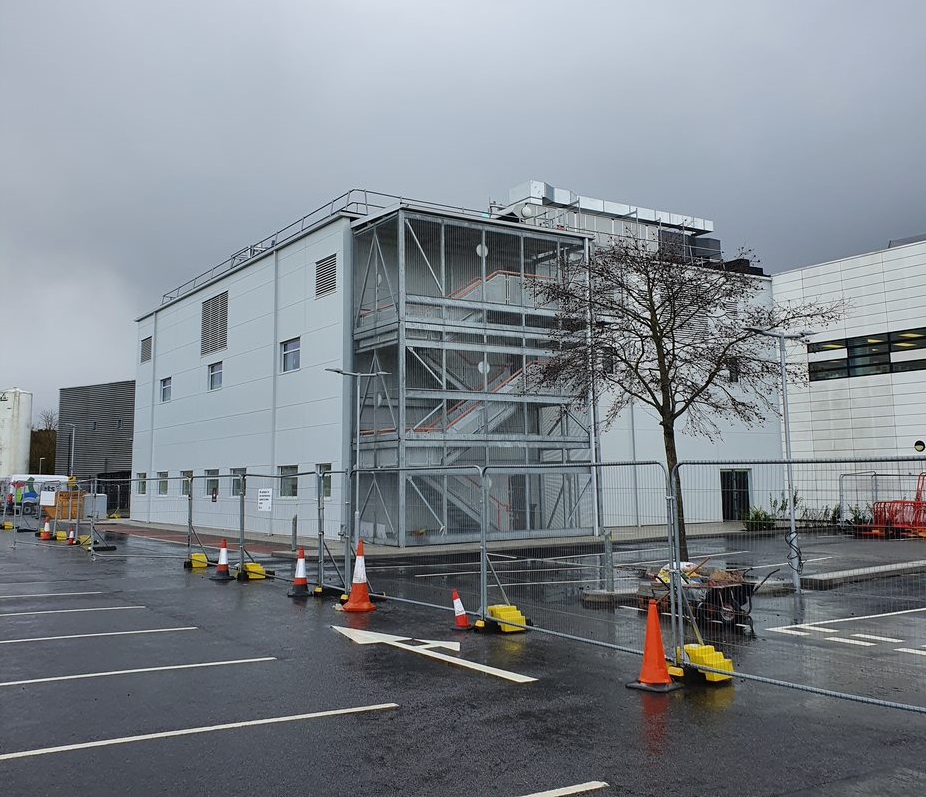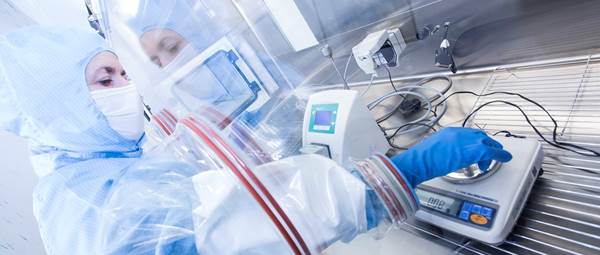NHSBT awarded share of £18m gene therapy investment to help advance research into new treatments for patients
NHS Blood and Transplant has been awarded £4.6m to create a specialist gene therapy hub at its Bristol site as part of a collaboration to develop new treatments for patients with rare or life-threatening diseases.
 The facility will be one of a network of three cutting-edge gene therapy innovation hubs funded by an £18m grant by LifeArc and the Medical Research Council (MRC), with support from the Biotechnology and Biological Sciences Research Council (BBSRC).
The facility will be one of a network of three cutting-edge gene therapy innovation hubs funded by an £18m grant by LifeArc and the Medical Research Council (MRC), with support from the Biotechnology and Biological Sciences Research Council (BBSRC).
The NHSBT hub will work alongside the other hubs at King’s College London and The University of Sheffield to advance the clinical development of new gene therapy treatments, with potential to transform care for millions of patients.
It will be hosted within a new state of the art 1,000m2 facility for the production of gene therapies, funded jointly by NHSBT and the Department of Health and Social Care, that is currently under construction at the Filton site, one of NHSBT’s three main processing centres.
Due to be operational by the end of 2021, the new facility will support early phase academic-led gene therapy trials and facilitate the provision of cost-effective viral vectors and plasmid DNA to stimulate the UK's gene therapy sector.
The hub, led by Dr Jon Smythe and Dr Paul Lloyd-Evans, will provide viral vector manufacturing, training and support services for academic-led groups seeking Adeno Associated Viral (AAV), Lentiviral (LV) vectors and plasmid DNA at GMP and research-grade qualities.
It will also support academic-led teams in the translation of their research to the clinic and work with the other hubs to develop, optimise and deliver a comprehensive training package to generate a highly skilled workforce, serving both the academic and commercial gene therapy communities.
Gail Miflin, Chief Medical Officer and Director of Clinical Services, NHS Blood and Transplant, said: “Gene therapies have huge potential and this funding will enable NHS Blood and Transplant to be at the heart of developing these new medical advances.
“This grant will allow the NHS to better collaborate on novel gene therapies, which we hope will mean new treatment options for patients with rare illnesses who are least likely to benefit from existing options.
“We are confident the new hub will help strengthen the UK's position as an international leader in gene therapy research and innovation.”
About gene therapies
Gene therapies have potential to deliver treatments for a wide range of conditions, including around 7000 rare diseases, the majority of which are caused by one faulty gene. Gene therapy aims to treat – or even cure – these conditions, by engineering another gene to replace, silence or manipulate the faulty one. The therapeutic gene is frequently introduced via a ‘viral vector’, a virus particle modified to remove all unwanted or harmful properties.
The UK has a world-class genetics research base, however, to date, academics have found it difficult to get access to the clinical materials, facilities and expertise required to progress gene therapy research into clinical trials.
The hubs will unlock development pathways for these new treatments by offering access to GMP (good manufacturing practice) facilities for clinical trial materials, alongside essential translational support and regulatory advice. The hubs will operate as a coordinated network, sharing technical skills and resources to enable innovative gene therapy research.
Progressing promising research
Dr Melanie Lee, CEO of LifeArc, said: “Recent innovations in gene therapies hold enormous potential for treating conditions such as rare diseases, but often promising ideas – particularly in academia – are not making it through to patients. Through our collaboration, we aim to meet the need for researchers to have access to the essential facilities and translational advice to progress promising research.”
Professor Fiona Watt, MRC's Executive Chair said: “Support for innovative advanced therapies has been a long-standing priority for MRC and so we are delighted to announce this unique partnership with LifeArc. The new network of Innovation Hubs for gene therapies will build on the UK’s great strengths in this area, providing targeted investment in vital infrastructure to accelerate academic research programmes down the path to patient benefit, supporting the delivery of a new wave of genetic medicines.”
Dr Lee Beniston, BBSRC’s Associate Director for Industry Partnerships & Collaborative R&D, noted: “Gene therapies have outstanding clinical potential, but their development is critically dependent on the manufacture of the underpinning viral vector delivery technology. Over a number of years, BBSRC has made significant investments to help support bioprocess research and development; we are therefore delighted to be investing in this network of Hubs which will harness the UK’s excellence in bioprocess innovation to tackle key challenges in viral vector manufacturing.”
The creation and ongoing operation of the hub network will be overseen by a cross-network Coordination Committee to promote sharing of knowledge and capabilities, engage with the academic community and foster interactions with commercial organisations to facilitate the onward the development of new genetic medicines.
